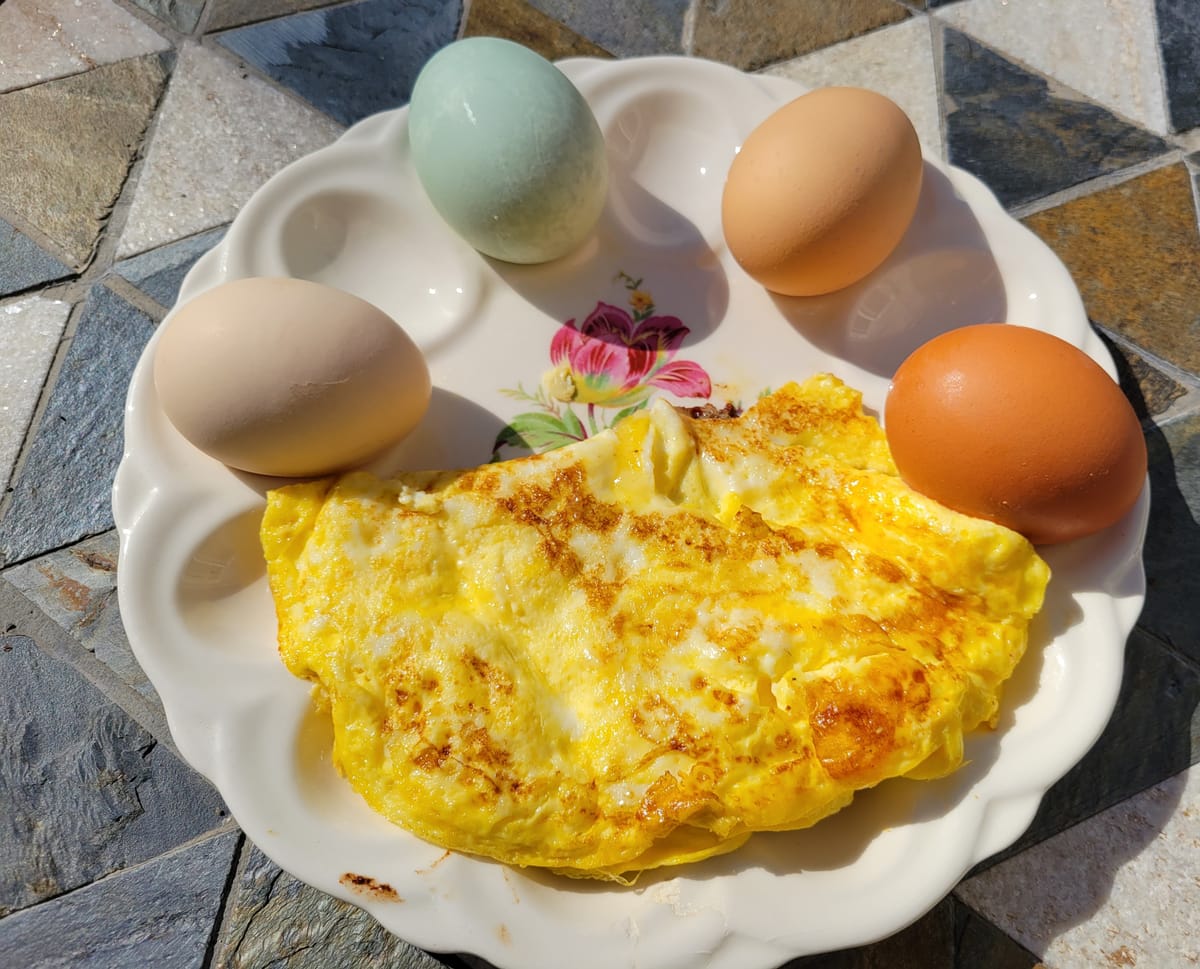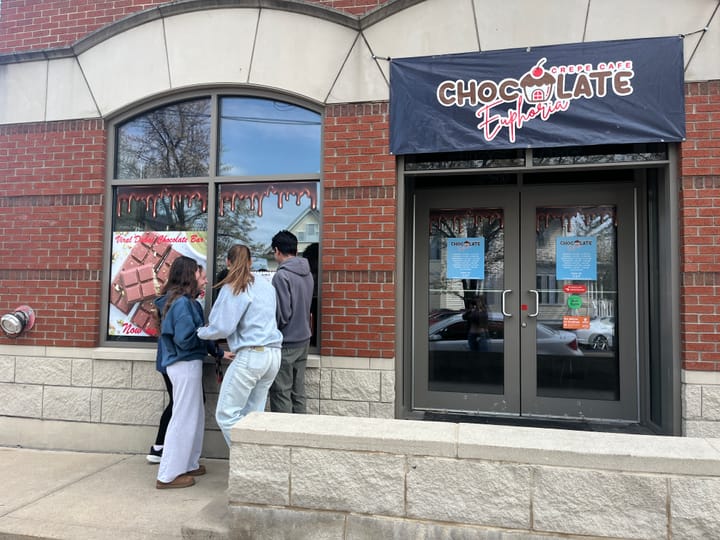On My Plate: Local eggs
Eggs are one of the foods most associated with Easter, and Oxford has multiple options to buy locally, even in the midst of rising egg prices nationally.

Eggs are possibly the most iconic food item associated with Easter, and an egg was included in the recent Passover seder. I hesitated to write about eggs this Easter week, given their prominence in the national narrative about food prices, but this column is about local food in Oxford. As with much of our food supply, our local growers are in many ways independent of national conditions.
A number of local owners of hens sell eggs privately or through the internet. The two principal local egg suppliers selling retail to the public are Craig and Sharon Harkrider’s Stoney Hedgerow Farm in Camden, available at Oxford’s Farmers Market, and the Filbrun family’s Morning Sun Farm in West Alexandria, available at MOON Co-op Grocery.
Craig Harkrider is typical of several vendors at Oxford’s Farmers Market. During the week, Craig has a full-time job, running Miami’s box office, and on Saturday mornings he sells eggs — as well as squash, peppers and garlic when in season — at the Farmers Market.
The Filbrun’s Morning Sun Farm converted to organic practices several decades ago and has been certified organic since 1995. Certified organic egg production means that the hens must have access to the outdoors, cannot be raised in cages, and are fed organic feed. Organic egg producers cannot use antibiotics except during an infectious outbreak (which has never happened at Morning Sun Farm).
When Easter comes early in the calendar, in March, local eggs can be relatively scarce because local free-range hens lay fewer eggs in the cold of the winter. However, this year, with the holiday in late April, the hens are active, and local growers are not reporting shortages.
The price of supermarket eggs has increased sharply in the past year, but local growers have increased their prices modestly, if at all. While their costs have increased in some respects, our local growers have strong connections to our community and to their loyal local buyers, so they have avoided substantial price increases.

One of the most critical components of increased costs experienced by our local growers is the routine replacement of their stock. Every year, new hens are needed to replace those that now lay fewer, if any, eggs. This year, the national shortage of hens has made it impossible to obtain hens. Instead, our local growers are getting one-day-old chicks. These chicks need to be nursed until they’re old enough to lay eggs, perhaps not until the end of the year. Instead of Easter eggs, they might be laying Christmas eggs.
People seem daunted by cooking basic egg dishes. A simple omelet will turn out just fine in a standard nonstick pan. Melt one tablespoon of butter in a nonstick pan over medium heat. Whisk two eggs with one tablespoon of milk until evenly mixed and pour into the pan once the butter melts.
Be patient. Let the eggs cook on medium heat until they start to set. With a rubber spatula or scraper, lift up an edge to allow runny bits to reach the bottom of the pan. When the eggs are mostly set but still a bit runny, use a spatula to fold over one-third of the omelet atop the center. Fold the other one-third over the top as well. With the spatula, turn over the entire packet to brown (but don’t burn) both sides.
Craig has told me that his chickens are very happy, and happy hens lay more and better tasting eggs. Craig know that the chickens are happy, because they are chatting away with each other. In what language? Chicken talk. Craig, I asked, do you speak chicken talk? No, but I understand what they are saying, and they say they are happy to be out in the fields mowing the grass.
From my friend Paul Fowler, the chickens are happy because they Coop-erate.
James Rubenstein is president of the Board of Directors for the Oxford Free Press and professor emeritus of geography at Miami University.




